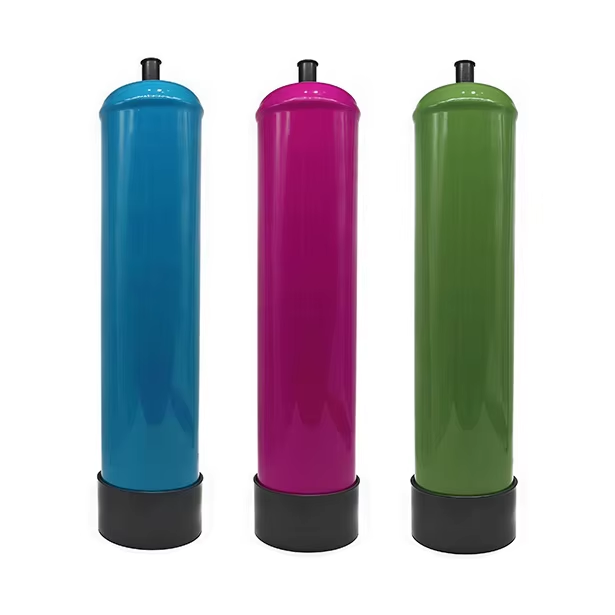The Ultimate Guide to Cream Chargers: Everything You Need to Know
Are you curious about cream chargers? Maybe you're a professional chef looking for ways to enhance your kitchen's efficiency, or perhaps a home barista wanting to whip up fresh cream at the perfect consistency. Whether you're dipping your toes into culinary artistry or running a high-volume café, this guide will take you through everything there is to know about cream chargers — including how they work, the types available, their safety, and best practices for use.
What Are Cream Chargers?
Cream chargers are small, cylindrical capsules filled with nitrous oxide (N₂O) gas used primarily in the food industry, specifically with handheld whippers, commonly known as siphons. Their primary function is to rapidly aerate dairy creams to create that fluffy whipped texture enjoyed atop desserts, beverages, or as toppings in various gourmet applications. Each charger usually provides a one-time dose of gas for whipping cream efficiently and quickly without effort.
How Do Cream Chargers Work?
Inside every whipped cream canister lies the cream charger’s superpower — compressed nitrous oxide (N₂O). Once activated inside the whipper:
- N₂O is released from the metal cartridge into the chamber of the canister.
- As the gas mixes with fat molecules in the cream, it breaks the structure down slightly and infuses air into the substance.
- This creates micro-bubbles that stabilize around the fat proteins, creating that firm yet airy finish characteristic of freshly whipped cream.
Why Are Cream Chargers Popular Among Culinary Enthusiasts?
- Speed: They allow chefs and home cooks to prepare fresh cream instantly, which traditional methods like beating by hand or using stand mixers simply can’t match in efficiency.
- Convenience: They require no electrical tools or long preperation periods — ideal for fast-paced restaurant service or spontaneous guests at your door!
- Precision: You control portion size and pressure manually—every squirt is just the right consistency when stored correctly between dispensing actions.

| Type | Description | Best For |
|---|---|---|
| Whipped Cream Charger | Contains N2O for thick liquid aeration. | Cafés, Dessert shops, Baristas, Home Use. |
| Bulk Charger Tanks | Compressed tanks holding large quantities of Nitrous Oxide used with refillable whipper systems. | High-volume operations like restaurants or events. |
Different Types of Cream Chargers
If you think all cream chargers do the same thing — think again. Here are the different types you’ll encounter, each designed for specific uses and user experience levels:
- Silo-type vs Mini Chargers:
- Silver "mini" Chargers – Most common household sizes (~8g), fitting almost any consumer-grade whipper system.
- Industrial Silo-style Tanks – These larger canisters hold up to 300 liters of gas. Perfect for large cafés or catering companies where volume efficiency matters the most.
- Veggie-Friendly Options:
- Use Only One Per Whipping: It’s crucial to not overload canisters; adding more than 1 standard 8g charger may cause explosive decompression upon removal.
- Keep Temperature Under Control: Exposure above 50°C (e.g., placing next to stove tops) risks rupturing the capsule seal, leading to injury risk and gas leak scenarios.
- Adequate Ventilation: Avoid storing full or empty cartridges together — ensure adequate airflow while keeping away from direct flames.
- I see 'Nitrous Oxide Abuse’ warnings sometimes - should I worry using this product safely?
- Are rechargeable bulk canisters better investment financially in long term?
- Cream chargers deliver fast, consistent whipped results without manual whisking via infusion of nitrous oxide (N₂O)
- Variety includes single-serve silver cartridges and multi-refillable industrial-grade bulk canisters suited towards operation scale differences.
- Storage temperature matters: Never exceed 122°F (50C); heat = burst risk
- Spoilage risk exists from overused/overloaded bottles so practice measured dosing habits.
- Eco brands emerging focus offering biodegradable plastic alternatives + reusable components minimizing waste impact planet.
Increasingly popular now are sodium-free and preservative-free options — these eco-conscious choices cater to consumers following healthier lifestyles or vegan dietary restrictions. Always check packaging for BPA-free seals, recyclability factors, etc., especially if sustainability drives brand perception.
Cream Charger Safety Guidelines
Though extremely helpful kitchen companions, misuse or overuse comes at a risk. Let’s talk practical steps to keep things safe:
Troubleshooting Cream Charger Mishaps
Sometimes, even after following guidelines closely, issues can occur.| Problem | Solution |
|---|---|
| Lumpy / Curdled Texture | Oxygen infiltration likely occurred during mixing stage due to old cream batch being acidic. Solution – Replace with fresher heavy/whipping variant (<7°F recommended refrigeration temp) |
| Gassy or Chemical Aftertaste | Might indicate improper dosage. Make sure only single charger added prior use and nozzle cleaned after discharge |
Frequently Asked Questions (FAQs) About Cream Chargers
If handled according proper instruction (sealed system only) usage inside sealed environment prevents unregulated exposure making them generally quite low hazard.
Depends on output frequency — if producing regularly more than 15–20 times monthly then yes, but for personal users mini-cartridges often sufficient and far convenient in compact prep kitchens such small spaces apartment settings versus large commercial kitchens needing rapid refills mid-shift.

